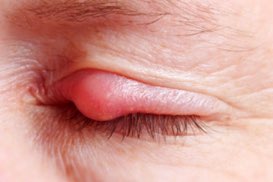We believe that patients who are active participants in their own care have better outcomes. We take a holistic approach to educating our patients, empowering them to make healthy lifestyle choices. If Dr. Muller feels you would benefit, she may recommend food allergy testing to identify potential sources of inflammation in your body, thus allowing you to reduce or eliminate them.
Inflammation in your body is not healthy except during wound healing and while fighting an infection.
Food allergies, food intolerances, and/or food sensitivities can cause unwanted, unhealthy inflammation in our bodies. Food allergies involve an IgE immune response to food proteins. Food intolerances and food sensitivities are generally the result of an individual’s gastrointestinal tract not being able to properly break down, or digest, a particular food.
There is an extremely broad range of symptoms a person with food allergies, intolerances or sensitivities may experience. This spectrum ranges from no symptoms at all, to anaphylaxis and death, with many, many symptoms in between these two extremes. Symptoms can include, but are not limited to:
- No symptoms that you are aware of
- Difficulty breathing
- Depression and mood swings
- Rashes, hives, itchy skin
- Bloating, gas, indigestion, abdominal discomfort
- Acne
- Brain fog, trouble focusing
- Joint pain/swelling
- Dizziness, headaches, migraines
- "Itchy mouth"
- "Itchy ears"
- Congestion, runny nose, sneezing, coughing
- Angioedema
- Fatigue, lethargy, difficulty sleeping
- Eczema, redness
- Dark circles under eyes
- Itchy, watery, red eyes
- Reflux, nausea, vomiting, diarrhea
- Anaphylaxis
You may want to consider avoiding, or limiting, a specific food you are found to be allergic to even if that food doesn't cause any outward symptoms or discomfort. This is because we know that foods you are allergic, intolerant, or sensitive to cause inflammation in your gastrointestinal tract.
Factors that can affect food allergies, intolerances, or sensitivities:
- Dose Dependent. The amount of food that is eaten. The “tolerated dose” is the greatest amount of a particular food which a person can eat without developing any symptoms or reaction. The “reactive dose” is defined as the smallest amount of a particular food which, when eaten, produces symptoms or a reaction.
- How the food is eaten- Raw vs. Cooked. Some people can eat a particular food with no reaction if that food is cooked, but experience inflammation, symptoms or a reaction when eating that same food raw (e.g., tomatoes). This is because cooking can change/denature the proteins that cause the inflammation, symptoms or reaction. This is often the case with fruits and vegetables.
The information gleaned from the allergy tests recommended in our practice via a skin prick test and/or a blood test provide individualized results from your body and is actionable. _____________________________________________
Below is general information for everyone:
The following are generally unhealthy because they cause inflammation in our bodies:
- Sugar (sucrose) and high-fructose corn syrup (cake, cookies, soda, fruit juice)
- Artificial trans and saturated fats (found in margarine and processed foods)
- Vegetable Oils High in Omega-6 Fatty Acids (soybean, grape seed, corn, sunflower, peanut, sesame oils)
- Refined Carbohydrates (bread, pasta, candy some cereals, cookies, cake, processed food, sugary soft drinks)
- Excessive Alcohol consumption
- Processed Meats (ham, bacon, sausage, smoked meat)
The following are generally healthy because they are part of an anti-inflammatory diet:
- Tomatoes
- Olive oil
- Green leafy vegetables (spinach, kale, collards)
- Nuts (almonds, walnuts)
- Fatty fish (salmon, mackerel, sardines)
- Fruits (strawberries, blueberries, cherries, oranges)
“Scientia potentia est” or “Knowledge is power”
*Dr. Muller received her undergraduate degree in Nutritional Biochemistry from Cornell University








